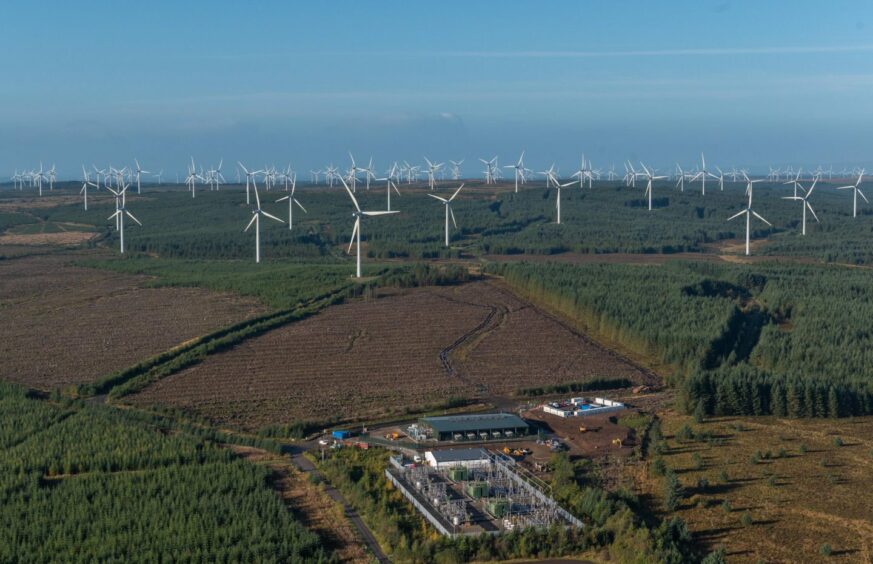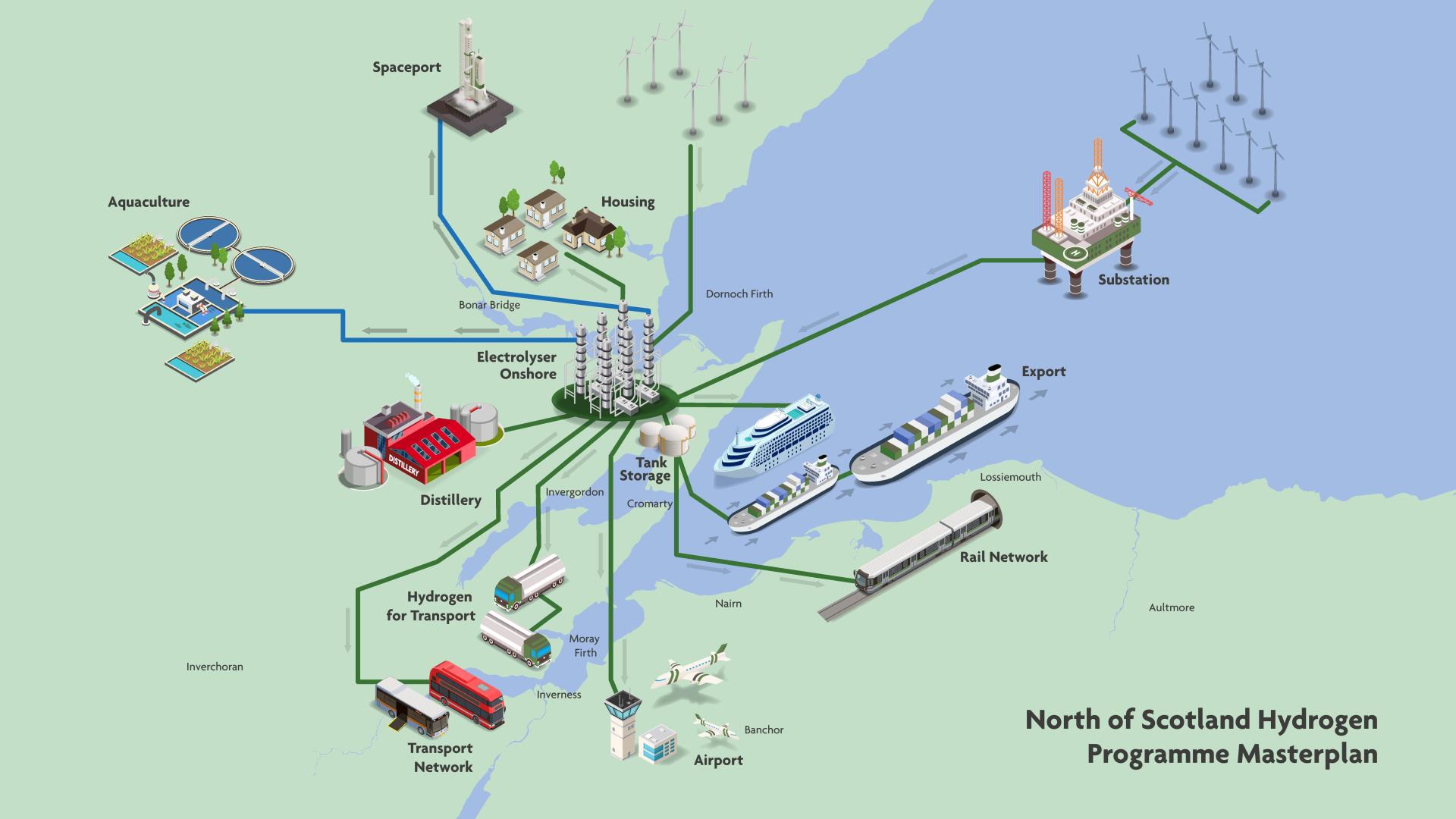
Two Scottish green hydrogen projects are among the first of three to sign contracts with the UK government under the first hydrogen allocation round (HAR1).
The state-owned Low Carbon Contracts Company (LCCC) signed the agreements with the project developers at the sites in Cromarty, Whitelee and West Wales.
Altogether, the three projects will have a combined hydrogen production capacity of 31.8 MW.
ScottishPower is developing the 7.1 MW Whitelee Green Hydrogen project at its major onshore wind farm near Glasgow.
The firm is also partnering with Storegga on the 10.6 MW Cromarty Hydrogen project near Alness, which is aiming to help decarbonise nearby whisky distilleries.
Meanwhile, H2 Energy and Trafigura are developing the 14.2 MW West Wales Hydrogen project at Milford Haven.
The West Wales project will produce green hydrogen to fuel a variety of shipping and industrial applications across south Wales..
LCCC said it is aiming to sign contracts with the remaining eight HAR1 projects early next year.
The HAR1 process is part of the UK government’s Hydrogen Production Business Model.
The support scheme is an adaptation of the Contracts for Difference (CfD) process used to support renewable energy projects.
LCCC, which also operates the CfD scheme, said the contracts will play a “pivotal role” in decarbonising critical industries while supporting regional economic growth.
‘Official launch’ of UK low-carbon hydrogen
The first three contracts follow months of uncertainty for the UK government’s HAR1 process after repeated delays and regulatory hurdles.
UK energy secretary Ed Miliband said the contracts marks the “official launch” of the country’s low-carbon hydrogen economy.
Miliband said the three projects are a “key step towards energy security and a new era of clean electricity”.
“These hydrogen projects bring substantial economic benefits for our industrial heartlands, with over £400 million in private investment committed by 2026, creating 700 jobs and driving economic growth,” he added.
LCCC chief executive Neil McDermott welcomed the signing of the first three “pioneering” HAR1 contracts.
“This milestone signifies our commitment to accelerating Britain’s journey towards a net zero future and underscores our pivotal role in delivering transformative projects, utilising cutting-edge technology, that drives decarbonisation,” McDermott said.
Meanwhile, Hydrogen UK chief executive Clare Jackson called the three contracts a “landmark achievement” for the hydrogen sector.
“It demonstrates the confidence and commitment of both Government and industry in building a sustainable hydrogen sector,” Jackson said.
“We look forward to maintaining this momentum and ensuring that the remaining eight projects progress swiftly.
“With full focus in January, we can build on these first projects and deliver a thriving hydrogen industry which will be vital for meeting the UK’s Net Zero targets, driving economic growth, and creating jobs.”
Scottish hydrogen sector
The Whitelee and Cromarty projects join a growing list of green hydrogen developments in Scotland.
North Sea operator BP and Aberdeen City Council are also progressing the BP Aberdeen Hydrogen Hub after reaching a final investment decision in July.
The Scottish government views green hydrogen as a key economic growth opportunity as it targets future export opportunities in Europe.
Scottish energy minister Gillian Martin has said the emerging hydrogen sector is one of Scotland’s “greatest industrial opportunities since oil and gas“.
But challenges around costs and project delays continue to hamper green hydrogen projects amid cancellations and other hurdles internationally.
Similarly, the oil and gas sector is calling for more certainty surrounding government support for blue hydrogen, which is produced from natural gas with carbon capture.
Offshore Energies UK head of energy policy Enrique Cornejo said if the UK is to meet is low carbon hydrogen targets, it needs the “full project pipeline to materialise”.
“This includes progressing the HAR2 process for green hydrogen projects and providing a route to market for blue hydrogen involving natural gas and carbon capture, which currently lacks access to government support,” Cornejo said.
“Both blue and green hydrogen projects are needed to scale up low carbon hydrogen production.”
However, the Carbon Tracker think tank has argued support for gas-powered hydrogen production and carbon capture schemes risk derailing the UK’s net zero targets.

 © Supplied by Storegga/Scottish Po
© Supplied by Storegga/Scottish Po